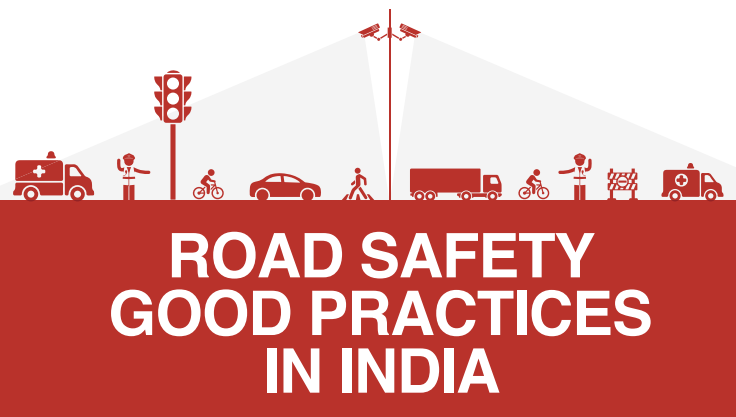The Ministry of Road Transport and Highways (MORTH) and SaveLIFE Foundation, supported by Bloomberg Philanthropies Initiative for Global Road Safety (BIGRS), have released a Road Safety Good Practices in India Report to explore and document replicable best practice achieving impact in curbing the alarming toll of road crash injury in the country.
Use of the iRAP methodology and tools to eliminate high-risk roads in India since 2011 features heavily in the report. iRAP is recognised as an important data-driven intervention to understand infrastructure risk before and after road upgrades, and support road safety decision-making, investment and policy.
The locally owned and led IndiaRAP Programme has been supporting the life-saving work of road safety partners in the country – including the government, development banks, mobility clubs, road safety NGOs, research organisations and industry – since its launch in 2017.
India, with its complex road dynamics and high fatality rates, is at a crossroads. Various State Governments are actively addressing the significant issue of reducing road crash deaths through innovative strategies.
The report highlights good practices, including 13 case studies across 10 states.
iRAP features in many of these including:
- Belgaum Yaragatti Highway’s Safe Corridor Demonstration Project (SCDP), Karnataka – recorded a 54% reduction in deaths from 2015 to 2018 (Case Study 1)
- Kazhakoottam-Adoor (SH-1) Safe Corridor Demonstration Project (SCDP), Kerala – recorded a 46% reduction in deaths from 2013 to 2021 (Case Study 2)
- Renigunta-Kadapa Stretch (SH-31), Andhra Pradesh (Case Study 5) – recorded a 22% reduction in deaths from 2012 to 2015 (Case Study 5)
- Bharuch-Dehgam Corridor, Gandhinagar-Koba-Indira Bridge, Mehsana Himatnagar Highway, Gujarat – resulted in improved safety standards (Case Study 8)
- Uthiramerur – Kannamangalam Corridor (SH 118A) Tamil Nadu Road Sector Project II, Tamil Nadu – resulted in improved safety standards (Case Study 9)
The NH 48 (Old Mumbai-Pune Highway) Zero Fatality Corridor (ZFC) project also features which registered a remarkable 61% decrease in fatalities between 2018 and 2021.
The report’s good practices were selected based on specific criteria, including sustained reductions in road crash fatalities during the project implementation period, efforts to strengthen institutions for efficient road safety management, and the implementation of robust mechanisms across the 4Es of road safety (Engineering, Education, Enforcement, and Emergency Care).
Included interventions have been categorised as corridor-based, network-based, and state-based, and aim to provide ready working knowledge to support replication of the interventions in similar high-crash zones across India.
This new essential evidence-based reference guide aims to facilitate cross-functional knowledge exchange, foster collaborative actions, and aid the development of improved policies and practices. It will empower State and city-level authorities to undertake more informed initiatives to enhance road safety outcomes.
To download the report, click here.
For more information on the work of IndiaRAP, click here.


















